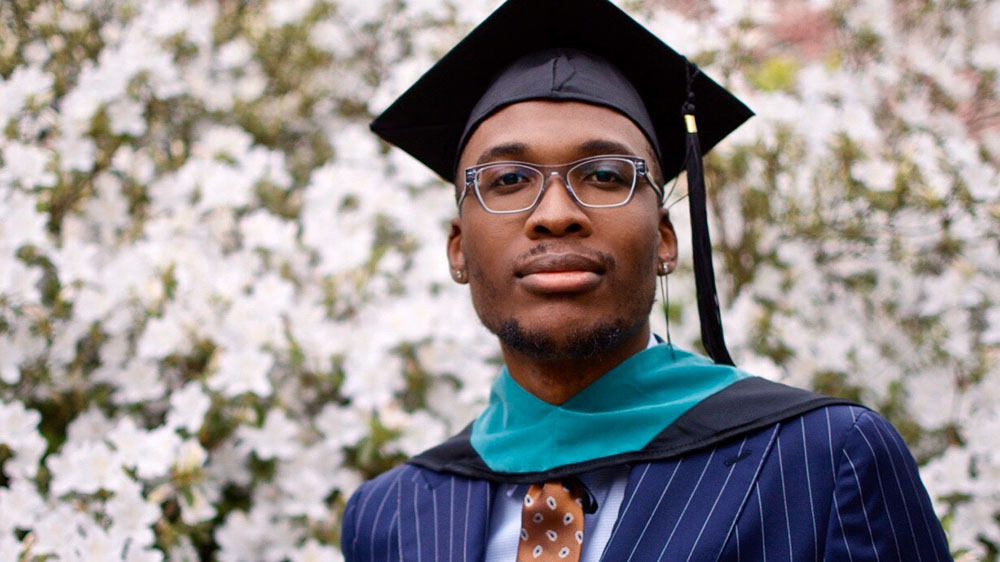
Recognizing Dean David Weil, distinguished Heller faculty, the Class of 2020 and my MPP cohort:
I begin this speech grateful to all of those who have blessed my life through word and deed. I am thankful for faith, which has brought me thus far. I stand in gratitude for my beloved mom. I am grateful to mentors, my chosen family and Ronesha for making this journey a little easier at Heller. I am grateful to a cloud of witnesses who are no longer here, yet have kept me buoyant.
A lanky, bookish student beset with fevers, muscle aches and pains, and a persistent dry cough lies in a local hospital. The bells and alarms ever present throughout the ICU nag at his desire to lay in total silence. The words of his forever friend reverberates through his mind — “You will make it. You can’t give up. You have to fight”. Occasionally, the cough that emits from his slight frame jolts him from his trance. It was no longer an option for him to ignore these symptoms. After all, he was all too aware about the current public health crisis our country faces.
This student tested positive shortly before his hospitalization. Positive for HIV. That student was me. I am so grateful that in that moment, my friend Ben affirmed me and inspired me to take action — for myself and my community.
HIV remains a public health crisis in this country, particularly for Black same gender loving and Trans folx. The confluence of racism, heterosexism, transphobia and ableism within our healthcare system and our stunning refusal as a country to admit healthcare is a fundamental human right fuels this epidemic.
My decision to pursue a Master of Public Policy degree was to ensure that my HIV diagnosis would not remain the norm for other Black and Queer young people. In short, I knew I had to fight for my life and those of my community. Much of the progress we have achieved in this society has been achieved from those of us who have literally fought back from death to say enough is enough — self determination is a potent force for change. However, the burden of making change cannot rest on marginalized folks alone.
Heller’s commitment to knowledge advancing social justice has equipped us with the necessary skill sets to tackle inequality and injustice. My impressive cohort will go on to address the most consequential dilemmas of this century. However, a commitment to social justice alone is not enough. Our commitment to social justice cannot merely be theoretical. It must be kinetic.
Many of those who adhere to social justice as guiding principles have become comfortable with issuing apologies and summoning tears when they realize that their words and actions have caused harm. Tears will not dismantle structural racism and every other ism in our society. What we need to address the HIV epidemic and every issue that brought each of us to Heller is a fundamental pursuit of justice. Justice demands an account from each of us and justice requires that we center those who are invisible in society.
As graduates of Heller and as citizens of this world, we have a responsibility to ourselves, those who come after us and those who lived long before we were here to actively pursue justice and to acknowledge that business as usual in the world cannot continue, especially at this moment. I close this morning with a stanza from Adrian Stanford, a Black and Queer poet who is now an ancestor. In a poem which is a clarion call for empowerment, Stanford says, “Let there be planted the seeds for an intellectual, moral, and social revolution out of which a new culture can be formed; out of which a new civilization can be fashioned; out of which a new world can be hewn.”
May Stanford’s words be our charge today and in the future. Today we can begin to create anew to not simply dismantle injustice, but to create within ourselves and in our communities gardens for justice, that will bear fruit for every single person.
